Atlas FC overcame its cursed roots to win a Liga MX title. Can the club keep winning?
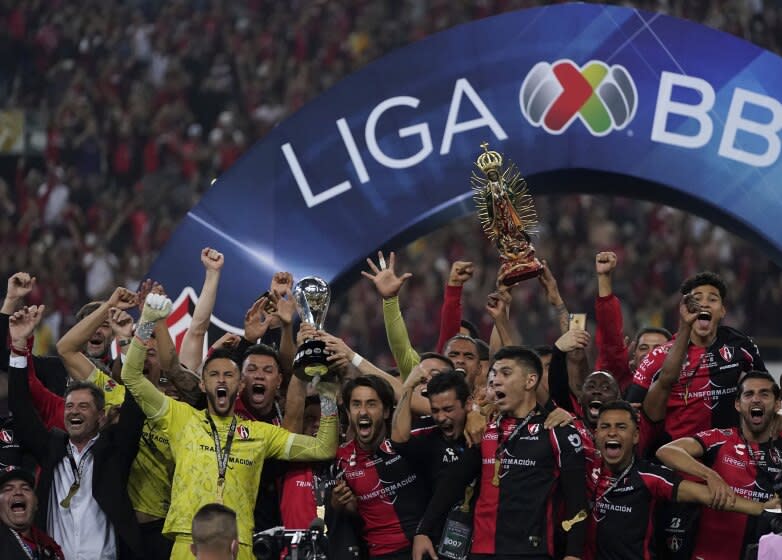
As with most plans that were hatched in a bar, the reality of Atlas FC has rarely lived up to the aspirations.
Mexico’s most star-crossed soccer team was founded during the country’s revolution by three sets of brothers who got together to toast their college days. It would be 35 years before they toasted their club's league championship.
It would take twice as long for Atlas to win a second title.
“That’s part of our history,” team president José Riestra said. “We cannot keep saying, ‘Well, it’s Atlas. We used to win sometimes.’
“One in 70 years? No. We have to change that.”
Riestra has. When Atlas FC beat León on penalty kicks in last December’s Apertura final, it marked the team’s first league championship since 1951. No Mexican team had gone longer between titles.
Now the club is going for another, opening the two-leg Liga MX Clausura playoff quarterfinals Thursday with a 2-1 win over crosstown rival Chivas. The second leg will be played Sunday at Estadio Jalisco, Atlas' aging home, with aggregate goals determining which team advances to the semifinals.
Winning, however, has brought a whole new set of challenges for a franchise and a fan base that have long been defined by losing.
“The championship removed that black cloud, that bad vibe that was in all the people,” forward Julio Furch, whose penalty kick decided December’s final, said in Spanish. “Perhaps many people are satisfied with what was achieved. But we are not.”
One of Mexico’s oldest clubs, Atlas FC has a large and devoted following and a rich history, having produced iconic players such as Jared Borgetti, Pavel Pardo, Andrés Guardado and Rafa Márquez, all of whom rank in the top four all time in either appearances or goals with the country’s national team.
But in recent years, the franchise lost its ambition. Its facilities were aged and crumbling, and there was little investment in cutting-edge technologies like analytics. It wasn’t that the team was underachieving; it wasn’t achieving at all.
“They were abandoned,” Aníbal Fajer, the club’s new executive director, said of the club’s supporters, among them golfer Lorena Ochoa, singer Alejandro Fernández, director Guillermo del Toro and figure skater Donovan Carrillo.
Think of Atlas FC as Mexico’s version of the Boston Red Sox, another team with a rich history and loyal fan base that once looked at its own title drought as a kind of suffering that made it more noble than, say, the Yankees, whose fans rarely knew disappointment.
Then the Red Sox won a World Series and became the Yankees, winning three times as many championships as their rivals from New York over the next 14 seasons. And like the Red Sox, Atlas saw its fortunes change with new ownership that challenged a long-standing culture of a cursed club that could never win.
Just as hedge-fund manager John Henry saw potential with the undervalued Red Sox, Grupo Orlegi, an innovative sports and entertainment company led by Mexican billionaire Alejandro Irarragorri, saw untapped possibilities with Atlas.
“When we decided to buy the team we said that it had a lot of potential,” said Riestra, a banker before joining Orlegi. “They have a great fan base. They have a great fan base in the U.S. I believed if you did things differently you could win.”
So Irarragorri, who bought a majority share of Liga MX rival Santos Laguna in 2013 and won two league titles in the next five years, bought Atlas FC from Mexican broadcasting giant TV Azteca in 2019 and sent Riestra and Fajer to Jalisco to turn around the team.
The team shares Guadalajara, one of Latin America’s largest tech and financial hubs, with Chivas, another tradition-bound club with a massive fan base. Chivas captured many of its supporters with a promise never to sign a non-Mexican player, and while that worked well in the 1950s and '60s when the club won eight first-division championships in 13 years, Chivas has fallen on hard times since, winning just two league titles this century.
So even though Chivas is generally regarded as Mexico’s second-most popular club, much of its fan base lives outside Jalisco. In the city, it has long been said that true Guadalajarans root for Atlas FC, not Chivas.
For decades, the teams shared a stadium as well as a city, but in 2010 Chivas moved into a modern 48,000-seat home of its own, leaving Atlas FC behind in the crumbling Estadio Jalisco, an iconic venue that has hosted two World Cups but opened in 1960.
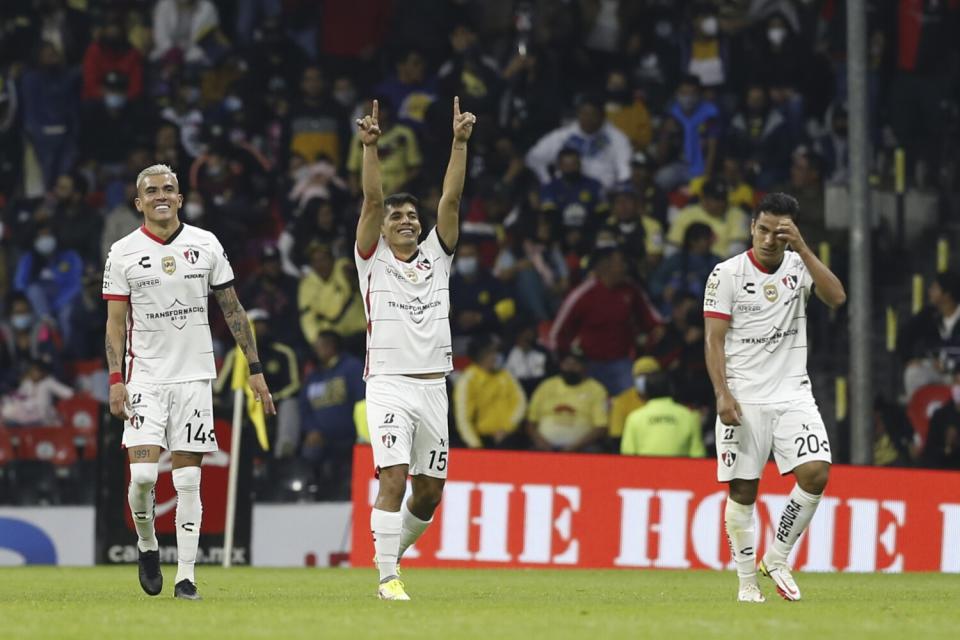
Orlegi’s success, its adherents says, is built on three pillars: infrastructure, structure and the processes they undergo. In Atlas FC, all three were lacking. In addition to its aging stadium, which rises unannounced in the center of the working-class neighborhood of Colonia Independencia, Atlas FC trained on the grounds of an abandoned country club too small to host the first team as well as the team’s academy and women’s team.
Orlegi hasn’t made a decision on what to do about the stadium, but it has spent $15 million on a sprawling 18-acre high-performance center in nearby Zapopan. Yet it was the people around the club who represented the biggest challenge in changing the team’s direction. Most of them had given up.
“We had to change the mentality,” Riestra said. “Nobody was taking responsibility. We said we have to change this. We have to put transformation in the minds of the players and the staff, the people working here and the fans.”
The problem, Fajer said, was after decades of losing, no one believed the club could win. Ever. So he took a different tack, arguing that if it wasn’t possible to win, it was at least possible to not lose.
“It came in different phases,” he said. “We started by convincing people that we can not lose once we’re on the pitch. Or financially we can not lose.
“Let’s try to not lose. And that’s what we tried to do with the culture.”
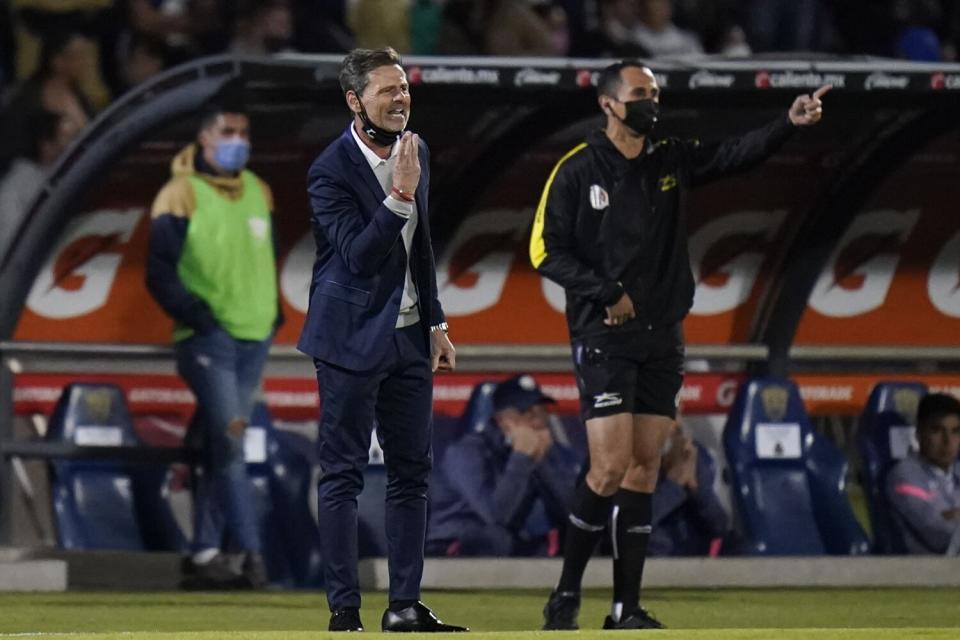
Not everybody bought into that either.
“We had to say goodbye to people that were not convinced we could transform and that the team was cursed,” Fajer said.
Atlas made some changes on the field, too. Diego Cocca, a former Atlas FC player, was brought back as coach, and nine of the 16 players he used in last December’s Apertura final all joined the team after Orlegi took over.
One of them, defender Luis Reyes, made his professional debut with Atlas FC, then toured Mexico with six other teams before returning to Guadalajara last year. He said the difference in the club was apparent.
“Before, the fight was not to be relegated. Now, it’s looking for championships, looking to win the league,” he said in Spanish. “Obviously for there to be a transformation like we’re talking about, the change also has to be from the board, the players, the coaches, the fans.”
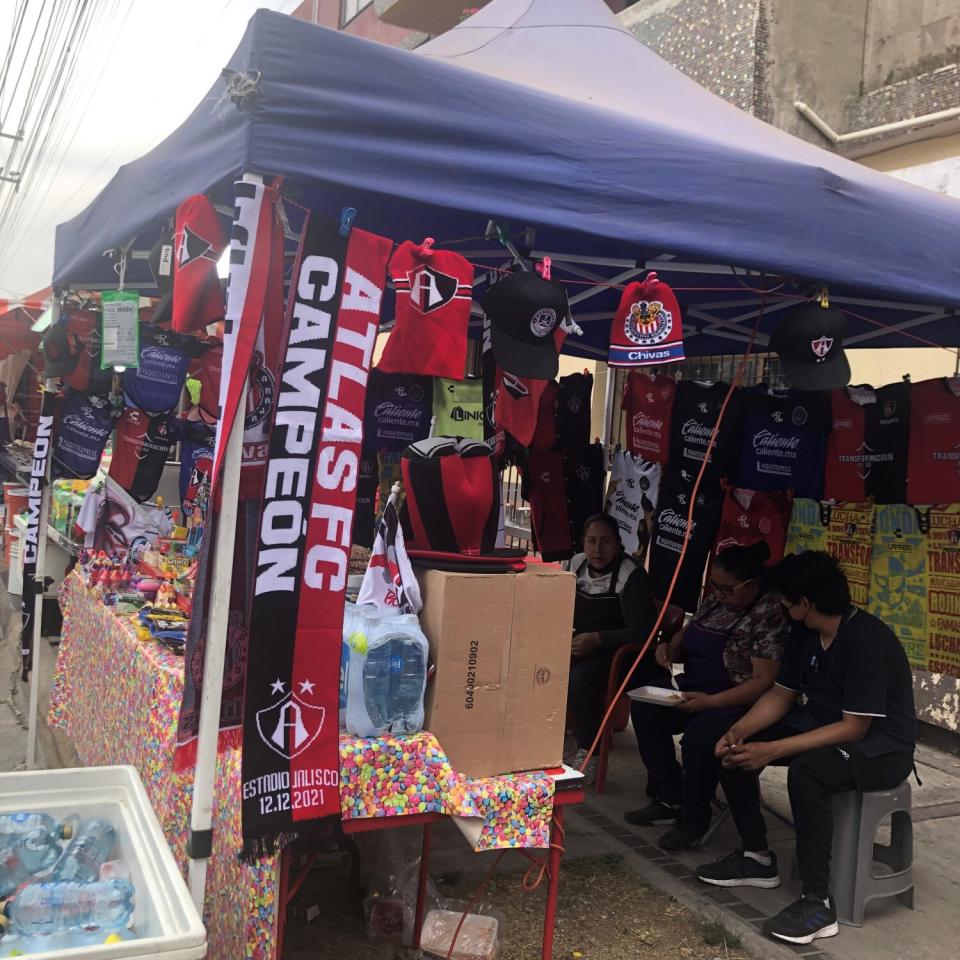
It was. And last summer Atlas FC took that campaign to the field, stripping the word Transformación across the front of the team’s red and black jersey where a sponsor’s name should have been. Still, Fajer said it wasn’t until last year’s playoff run that he knew that transformation had taken hold.
“One of the people that didn’t believe that we could do this, she asked if we’re champions, where is the celebration going to be,” he recalled. “I said, ‘Now you’re believing. It’s not that Atlas is cursed.’ ”
However, the knockout punch came from an unexpected source. On the eve of the final, world champion boxer and lifelong Chivas fan Canelo Álvarez addressed the team in a video call.
“He said, ‘This is your opportunity,’ ” Riestra said. “ ‘If you do this, you will change forever your life, your fans’ lives, all the fans’ lives. So believe it. You’re going to make it.’ ”
The players came away from that pep talk believing as well. But the real test came in the playoff final, which went to extra time. If there truly was a curse, this is when it would strike.
“There was a time, probably the fifth or sixth minute, where the stadium was very quiet,” Fajer said. “But this transformation, this believing that together we could change things, when Julio Furch was about to kick the last penalty kick, everyone was so confident that we were going to become champions.
“It was either this moment. Or never.”
That Furch succeeded is memorialized on a concrete block wall across the street from Estadio Jalisco, where Atlas’ two title-winning teams have been joined in a mural. Across the top of the mural, the stadium is depicted, and beneath are its two stars representing the two titles, a trophy and the word "campeón," in neat script. The popular Cocca, in mid-shout, anchors one corner while the starting lineup from last December’s final anchors the other.
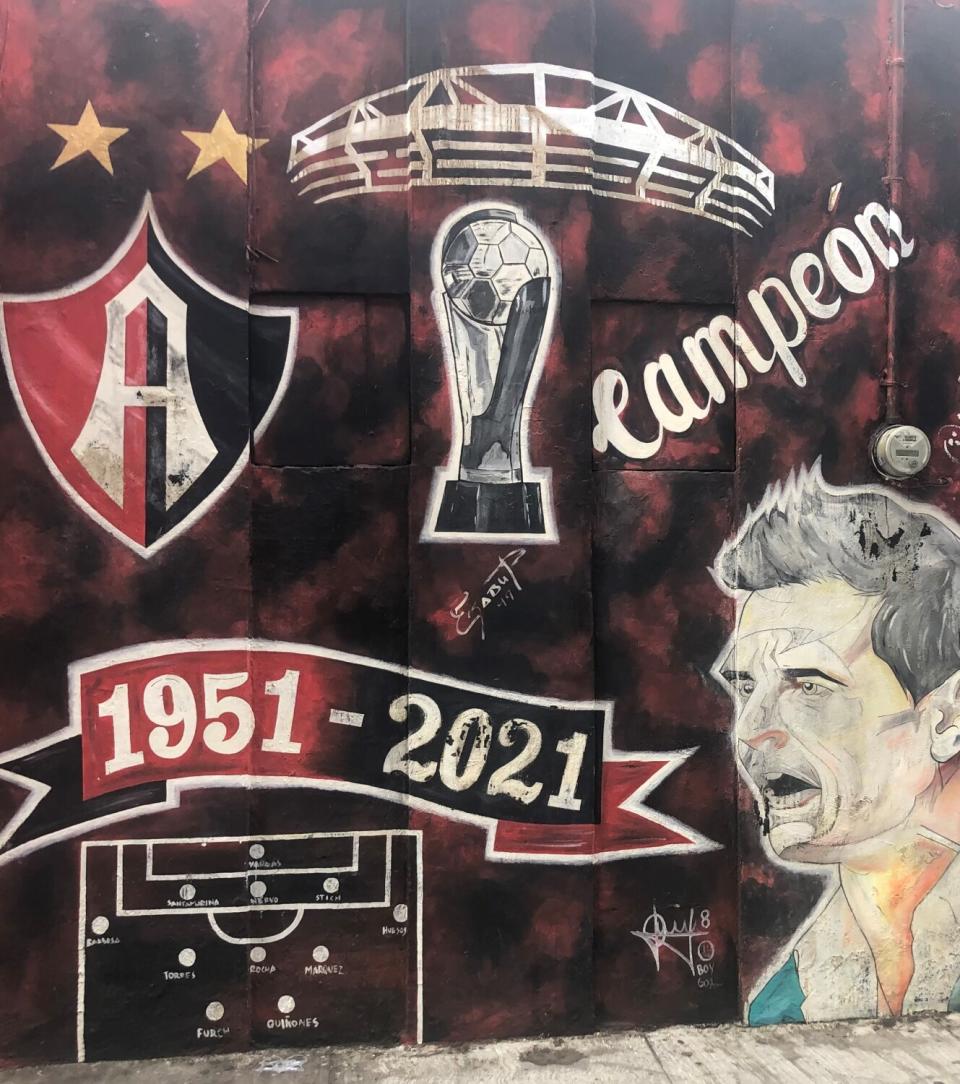
Ringing the stadium are vendors in rickety wooden stalls who do a lively trade in black-and-red scarfs, hats, shirts and wristbands stamped Atlas campeón, some with the dates 1951-2021.
Canelo’s prediction, however, has up come up a bit short. Although December’s win has transformed the franchise and altered Atlas’ expectations for this spring’s playoffs, Furch said the changes to his personal life have been relatively minor since his title-winning penalty kick.
“Now many places I go to eat, they give me a free dessert,” he said. “So I’m putting on weight. I don’t know how many pounds I’ve gained because of the desserts.”
This story originally appeared in Los Angeles Times.

